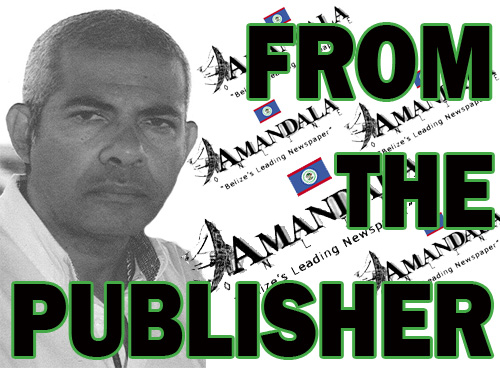Last week I heard someone on one of the political radio stations saying that the British were “coming back.” When I checked with Bill Lindo over the weekend, he said that David Cameron, the British Prime Minister, had said words more or less to that effect. Then, this week when I checked the Channel 5 website, there was a news story “more or less to that effect.”
The first thing I would say is that it is a testament to the increased political maturity, perhaps even cynicism, of the Belizean people that I have not heard many “hip, hip, hoorays” being shouted from the rooftops.
The British, who are a nuclear power, have been playing games with our Belizean heads for many years, because they know we are weak compared to Guatemala, and that Belizeans have traditionally considered them to be our protectors. Normally, it is in direct proportion to the extent of Guatemalan saber rattling that Belizeans embrace British military presence here, or a reinforcement thereof.
The classic example of this was in 1974, if I remember correctly, when the British dramatically flew in the high-tech Harrier jets to send a message to the Guatemalan generals and to comfort Belizean hearts. The resonant words of the then British Governor, the late Richard Posnett, to Belizeans on Radio Belize were: “Rest easy, and sleep well.” (Posnett, incidentally, is my favorite Britisher. He was a proponent of decolonization.)
When Belize decided the following year to begin internationalizing our claim to territorial sovereignty and political independence, however, the relationship between the PUP government and Whitehall became less cozy. As Belize approached independence in the late 1970s, the British position was that Belizean land cession was the best way to solve the Anglo/Guatemalan dispute. The Belizean people were dead set against any such giveaway, and so it was that the PUP government went ahead to independence without a settlement of the dispute, and thus it was that the “Anglo/Guatemalan dispute” became the “Guatemala/Belize differendum.”
In retrospect, it is not surprising that the British refused to give Belize a defence guarantee to comfort us as we entered independence. They were miffed at Belize for refusing to accept land cession, and so they played with our nervous heads by saying, coyly, that British troops would only remain here for “an appropriate period.”
Stretch Lightburn once gave me this Paul Cain joke from the 1950s, when the British garrison at Airport Camp was a fixture on the British Honduras scene. Paul Cain once joked that Belizeans were the only black people on the planet who went to sleep at night with white people guarding them. The British soldiers used to come into Belize City to party at the nightclubs on weekends. They dated Belizean ladies, fought with Belizean men, and some even started Belizean families.
All that began to change as we asserted our national dignity and became an independent nation. Then, during the general election campaign of 1993, the British announced that they were leaving. This announcement no doubt contributed to the PUP’s shock defeat in the June elections of that year. The British left us with something called BATSUB, which is supposed to be something like a training base for their soldiers who would participate in tropical jungle wars. The key thing about the BATSUB relationship was that it made British helicopters available to us for national emergencies. Two or three years ago, BATSUB was reduced to a skeleton, and their helicopters left The Jewel.
I’m not an expert on the British. I went to school in the United States. I know a lot more about American politics than about British affairs. When John Yapp was British High Commissioner here four years ago, he visited Kremandala and spoke with me and Mose. What I remember most about that conversation was that Yapp completely discounted any possibility of Cuban assistance in a Belizean defence emergency. He gave his reasons, and left me thinking.
You know, when I was growing up in colonial British Honduras in the 1950s and 1960s, I ate three meals a day. The portions were limited, but it was three full. As the years have gone by, I have realized that there were more of my classmates who were not getting three square than I was ever conscious of at the time. Belizeans were raised with British values, speaking the British language, and studying British history, but a lot of us were hungry. We were hungry because the British exploited our labor and raped our resources. Straight up. And so, when the British arrogantly and arbitrarily devalued our dollar in 1950, the people of Belize, the hungry people of Belize, rose up against the British.
Belizeans of today know that whatever the British do around here, it is in the interests of the British. They do not give a damn about us. We have to paddle our own canoe.
When I was growing up, I was an NIP. Remember, I was eating three square. In the winter of 1967, I became a disciple of Malcolm X, and in February of 1969 I became a founding officer of an organization called the United Black Association for Development (UBAD), which became an NIP ally in late 1971. In early 1972, however, I discovered that the politics of what looked like the NIP was really about personal interests and a power struggle amongst the “Baymen’s Clan.” I became an ally of the George Price-led PUP in 1975, a relationship which lasted until late 1980.
I am a Belizean nationalist. No one speaks for me. I speak for myself. I support BYGEA in their march on Belmopan. Big time.
Power to the people.

